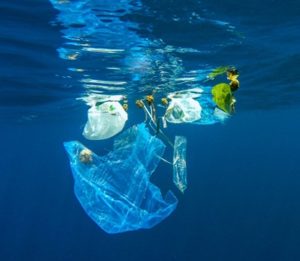 The tourism industry has undoubtedly suffered a lot due to the havoc caused by the COVID-19 pandemic. Millions of people worldwide lost their jobs and many agencies shut down. In the need of the hour, the tourism industry got its hands on virtual tourism and more high-tech ways of travel.
The tourism industry has undoubtedly suffered a lot due to the havoc caused by the COVID-19 pandemic. Millions of people worldwide lost their jobs and many agencies shut down. In the need of the hour, the tourism industry got its hands on virtual tourism and more high-tech ways of travel.
Above all, the conversation around the world is revolving around the need to adopt sustainable tourism. Just like the industry holds significance in terms of employment, it is crucial for the world to collectively think about the future of the environment.
The need for sustainable tourism
After the spread of coronavirus, the UN recommended that it is high time for the global tourism sector to fight against plastic pollution and other waste released due to travel and tourism.
ALSO WATCH: Insight into the Australian Art sector and how it can attract tourism? | Steven J Hopley
Environmental wellbeing in the hands of tourism industry
The sector holds great scope of bringing about a change and maintaining environmental wellbeing. People across countries are united via tourism. Therefore, industry leaders and policymakers need to align themselves with the implementation of sustainability laws within the sector.
Sustainable tourism is not merely limited to the environment!
It is mostly assumed that environmental welfare and economic welfare might not go hand in hand. But it’s not true. Economic welfare consists of the economic upliftment of communities, people who are working on the grounds for the growth of the sector. Thus, if environmental welfare is kept in mind, economic welfare will ultimately follow it.
Being sustainable is all about being thoughtful. If involved parties on the demand and supply side make conscious decisions, sustainability would be no more a dream but reality.

Image source: © Maldives001 | Megapixl.com
GOOD SECTION: How feasible is travel ban amidst Australian tourism woes
Who would get the most benefit?
The industry is vast, any good or bad change impacts the entire industry and the people working within it. Once sustainable tourism is kept in place in practicality, local communities, tourism enterprises, environmentalists and tourists, each party would be benefited in one way or the other.
Key catalyst- governments
To bring about change on a vast level, policy making plays a crucial role. National governments need to realise their role in bringing sustainability into the mainstream tourism paradigm. Rules and regulations should be framed in a way to promote people for more thoughtful tourism.
Additionally, suitable infrastructure is also needed for efficient implementation of the policies. People of every class and section of the society need to realise how tourism can actually become the master in uniting the world for the better.

Pandemic has given an opportunity to rethink tourism to make travelling and living better for everyone. All the natural resources are sacred, and they shouldn’t be hampered because of commercialisation of destinations for tourism.
The UN environment programme has been consistently asserting the need to adapt to a more sustainable form of tourism. Thus, the world tourism industry needs to adapt to the 17 sustainable goals for a better, safer, and healthier tourism.
SOURCE: KALKINE MEDIA


















